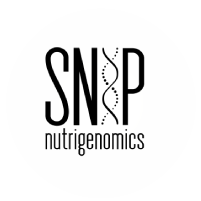Do you have difficulty methylating correctly? Are you looking for ways to improve your health? Check out this blog post for the best foods to eat to support methylation!
Methylation is a process that is essential for human health. It helps to regulate gene expression, supports cognitive function, and keeps the immune system functioning properly. Methylation also plays a role in detoxification and energy production.
Unfortunately, many people have difficulty methylating correctly due to genetic mutations (see our methylation panel for more specifics) or environmental factors.
Thankfully, there are foods that can support methylation and help to improve health.
In this blog post, we will discuss the best foods to eat to support methylation…
Not All Foods Are Created Equal
There are a few things to keep in mind when you are trying to support methylation with your diet.
First, it is important to eat a variety of nutrient-dense foods. This will ensure that you are getting all the nutrients that you need to support methylation.
Second, it is important to focus on quality over quantity. Make sure that you are choosing local, organic, and non-GMO foods whenever possible.
Finally, it is important to stay hydrated. Drinking plenty of water will help your body to function properly and support methylation.
When it comes to supporting methylation, not all foods are created equal. Cruciferous vegetables like broccoli and cabbage contain compounds that help to support methylation. Leafy greens like spinach and kale are also rich in nutrients that support methylation. Beets, carrots, and sweet potatoes are also good choices.
Other great options include the following folate-rich foods.
Folate-Rich Foods
Leafy greens
Avocado
Okra
Asparagus
Nuts and seeds
Cruciferous veggies: cauliflower, broccoli, Brussels sprouts
Beets
Bell pepper
Beans, peas, lentils
Papayas and oranges
Liver
Mushrooms
Turmeric
Rosemary
Berries
Fatty fish
Egg yolks
Dark chocolate
Coffee
Tea
Water with minerals
What to Avoid
Certain foods can actually block methylation or make it less effective. For example, processed foods and refined sugars can impede methylation. Alcohol and cigarettes can also have a negative impact on methylation. It is important to avoid these if you want to support methylation. Even though it may seem counter-intuitive, avoid anything fortified with folic acid as well.
Folic acid is the synthetic form of folate, a B vitamin found in food. Folic acid is often used in supplements and fortified foods because it is more stable and easier to produce than natural folate. However, there is some evidence that synthetic folic acid may affect the absorption of natural folate.
Folic acid is metabolized differently than natural folate, and it needs to be converted in the body to its active form, 5-methyltetrahydrofolate (5-MTHF), before it can be used. However, some individuals have a genetic variation that affects their ability to convert folic acid to 5-MTHF, which can lead to an accumulation of unmetabolized folic acid in the blood. This can interfere with the absorption of natural folate, which can lead to a deficiency.
Additionally, high doses of folic acid can mask vitamin B12 deficiency, which can cause neurological damage. It’s important for people to be aware of their B12 and folate levels, especially when taking supplements or fortified foods.
Therefore, it’s important for individuals to consult with a healthcare professional when considering taking folic acid supplements, especially if they have a history of nutrient deficiencies or are at risk of them. A healthcare professional can provide guidance on the appropriate dosage and timing of folic acid supplements, and can test for nutrient levels.


